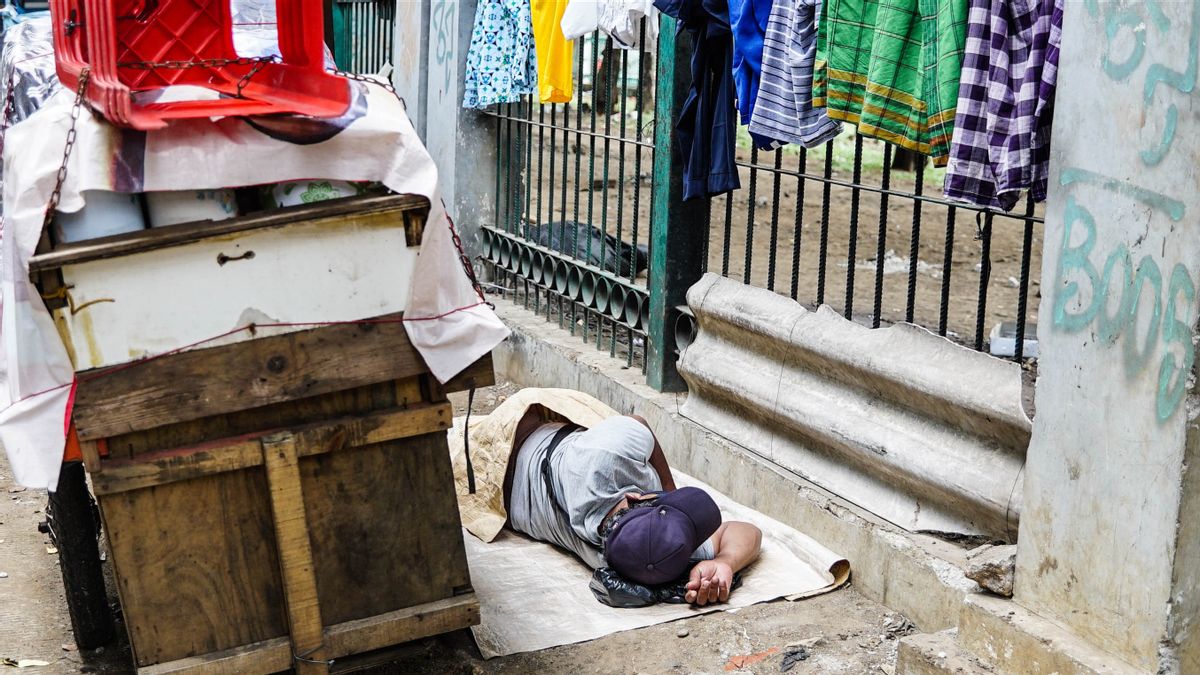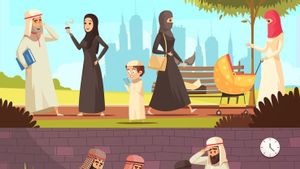JAKARTA - The Coordinating Minister for Human Development and Culture (Menko PMK), Muhadjir Effendy, said, during the pandemic of the corona virus or COVID-19, many people fell into poverty or he called 'shock poor'.
He said the people's economy fell after losing their jobs due to the implementation of the Large-Scale Social Restrictions (PSBB) policy during the pandemic.
"They are our residents who were not poor before, but are now poor due to COVID-19, or what I call poor shocked. As a result of the impact of COVID-19," Muhadjir said in an online press conference broadcast on the YouTube account of the Presidential Secretariat, Friday , 8 May.
The government made the scenario or social safety nets for the poor SafetyNet affected COVID-19. In addition to implementing a social safety net, the government also helps poor people who have already been recorded in the Beneficiary Integrated Social Welfare Data (DTKS).
Muhadjir said the government's focus now is to help poor people who have lost their jobs amid the pandemic. Therefore, for people who have not registered in the DTKS, he said, further verification would be carried out so that the assistance was right on target.
"According to the President's direction, this group of people who suddenly become poor is paying close attention to it," he said.
Muhadjir added that the government has distributed assistance to communities affected by COVID-19, including; basic food packages, family hope program, direct village cash assistance, to lower electricity rates.
Some of these programs, said Muhadjir, are routine assistance provided by the Ministry of Social Affairs and the Ministry of Villages and Disadvantaged Areas. However, during the COVID-19 pandemic, these programs increased their absorption capacity.

Social safety net from village funds
The Minister for Disadvantaged Villages and Transmigration (Kemendes PDTT) Abdul Halim Iskandar said there would be direct cash assistance (BLT) for villages whose funds would come from reallocating village funds.
The data collection process for beneficiary families, he said, would be carried out from the RT or rukun terangga level and would be carried out by three village volunteers referring to the existing DTKS.
"Efforts are made to record data for each RT by three village volunteers," said Halim at the same press conference.
He explained, after the data collection and validation process by village volunteers, the existing data was taken to a special village meeting to be validated, so that all parties were involved and knew who the beneficiary families were.
After an agreement is reached in a special meeting, the data is then brought to the district level for synchronization so that there is no overlap with other social assistance. "There are two keys to the BLT, namely the adequacy and accuracy of the target," said Halim.
"These two things should not be abandoned and if they are fulfilled, there should be no problem," he concluded.
The English, Chinese, Japanese, Arabic, and French versions are automatically generated by the AI. So there may still be inaccuracies in translating, please always see Indonesian as our main language. (system supported by DigitalSiber.id)








